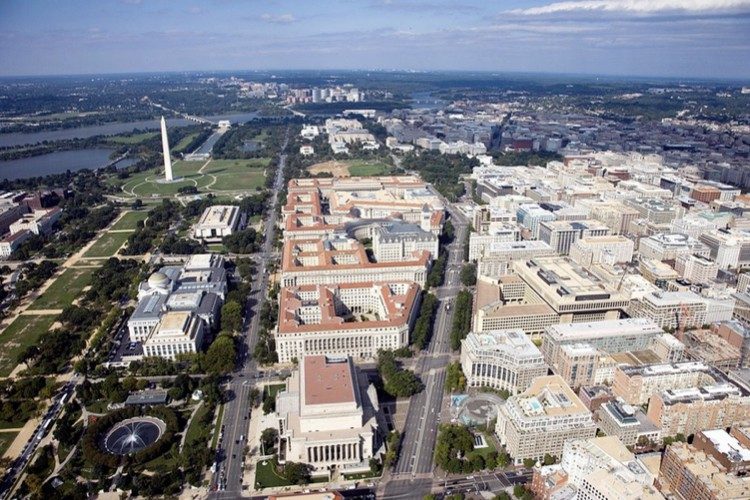
It was an issue that both Attorney General Robert Kennedy and Attorney General Ed Meese agreed on: Statehood for the District of Columbia is an unconstitutional proposal.
Senator Chuck Schumer of New York, the leader of the Senate’s Democrats, however, vowed before the election that should former Vice President Joe Biden win the White House and Democrats gain a majority in the U.S. Senate — giving the Democrats control of both houses of Congress — then they should move swiftly to grant statehood to the District of Columbia, by a simple majority vote of the House and Senate. This proposal, along with Schumer’s promise to end the Senate filibuster and pack the Supreme Court with enough new positions so as to bring that institution under the political ideology of Schumer’s Democratic Party are all examples of a desire for power that characterizes the modern Democratic Party.
Politically, the intention is to give the Democrats another seat in the House, and more importantly, two new reliably Democratic senators. After all, Republican presidential candidates routinely finish in the single digits in the District (Trump got five percent this time).
The motivation, then, is clearly raw political power. But even if statehood for the federal District of Columbia (which they wish to call New Columbia) were a good idea, it simply cannot be accomplished by a mere act of Congress. Such a move would require an amendment to the Constitution to repeal the 23rd Amendment, among other things.
The 23rd Amendment, ratified by the states in 1961, provided, “The District constituting the seat of government of the United States shall appoint in such manner as Congress may direct: A number of electors of President and Vice President equal to the whole number of senators and representatives in Congress to which the District would be entitled if it were a state, but in no event more than the least populous state.” (Emphasis added.)
In the original Constitution, as written in Philadelphia in 1787, it was provided that Congress would have the power to “exercise exclusive legislation in all cases whatsoever over such District (not exceeding ten miles square) as may, by cession of particular states, and the acceptance of Congress, become the seat of government of the United States.” Under this constitutional authority, Congress created the federal district in 1790 from land donated to the federal government by Maryland and Virginia. Writing in The Federalist, No. 43, James Madison said, “The indispensable necessity of complete authority at the seat of government carries its own evidence with it.”
Had it not been believed by Madison and others at the Constitutional Convention that the new federal government they were creating would need “complete authority” over the territory that contained the Capitol, the executive mansion, and other federal buildings, they could have simply left the national capital in New York City or Philadelphia.
Modern advocates of statehood for this federal district ignore all of that. They also ignore that, while Congress may, by statute, admit new states into the federal Union, a statute cannot violate the clear wording of the Constitution. And this proposal does just that. First of all, statehood via statute would violate the provision of the Constitution which gives Congress exclusive control over the federal district.
A second constitutional problem is found in Article IV, Section 3 of the Constitution, which states that no new state may be created from the territory of an existing state, without that state’s permission. Maryland granted the territory in 1791 “pursuant to the tenor and effect of the eighth section of the first article of the Constitution of the government of the United States,” which was the part of the Constitution that covered the creation of the federal district. In other words, Maryland was not giving the land to the federal government for the purpose of creating the state of New Columbia, but rather it was giving it for the purpose of the creation of the federal district, over which Congress would exercise exclusive control. Statehood would terminate such exclusive control.
Finally, the 23rd Amendment presumes the existence of a federal district as its permanent political status. For Congress to admit this federal district into the Union, when the 23rd Amendment refers to it “as if it were a State” creates an obvious contradiction. And if a statute conflicts with the Constitution, it is the Constitution that is to prevail. Writing in Marbury v. Madison, Chief Justice John Marshall said, “Certainly all those who have framed written constitutions contemplate them as forming the fundamental and paramount law of the nation, and consequently the theory of every such government must be, that an act of the legislature, repugnant to the constitution, is void.”
There are many practical objections to making D.C. a state, whether by statute or by an amendment to the Constitution. But in any case, doing so by an act of Congress, rather than constitutionally through an amendment to the Constitution, as would be required, is the most important objection.



